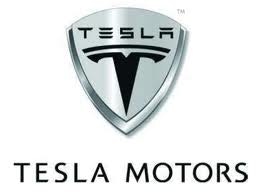Happy Friday! There are more good news articles, commentaries, and analyst reports on the Web every week than anyone could read in a month. Here are eight fascinating ones I read this week.

Golden years
BlackRock CEO Larry Fink talks retirement:
So if I’m speaking to those who are, let’s say, 45 and older, I would say if you don’t start thinking about how longevity is going to change your future, you most probably will have to work much longer than you ever dreamed of doing. Or you’d better start becoming very nice and very good to your children, because most probably you’ll be living with them.
Jeff Bezos, who recently purchased The Washington Post, talks about how to break a slump:
Continuing to contract by cutting the staff would lead to extinction, he said, “or, at best, irrelevance.” He told a group of reporters and editors Wednesday morning that “making money isn’t enough. It also has to be growing.”
“What has been happening over the last few years can’t continue to happen,” Bezos said.
“All businesses need to be young forever. If your customer base ages with you, you’re Woolworth’s,”
More complicated than it looks
Analyst Eddy Elfenbein writes on the limits of fundamental analysis, using Tesla Motors Inc (NASDAQ:TSLA) and Amazon.com, Inc. (NASDAQ:AMZN) as examples:
I’d say there’s about 10% of stocks, maybe even just 5%, where fundamental analysis is totally useless. Take Tesla Motors Inc (NASDAQ:TSLA) for example. By any conventional metric, the stock is absurdly overvalued. Unfortunately, I’m not considered a genius for pointing that out. Everyone knows that. The reason is that conventional metrics don’t work on unconventional stocks. If a technology comes along which changes the entire ballgame, all those ratios go out the window.
Consider the case of Amazon.com, Inc. (NASDAQ:AMZN). At its peak during the tech bubble, the stock was going for a ridiculous valuation. As it turns out, the stock was actually cheap. Since the turn of the century, Amazon.com, Inc. (NASDAQ:AMZN) has greatly outperformed the S&P 500. AMZN has more than tripled while the S&P 500 has had meager returns. The reason is that Amazon.com, Inc. (NASDAQ:AMZN) was a new business that changed the marketplace. Valuation didn’t tell you that.
C Suite
A study from the Rotman School of Management talks about the differences between private and public companies:
Family owned businesses perform poorly on most accepted ‘best practices’ of good corporate governance, from majority voting to independent chairs. Could it be possible that they have an important lesson to teach publicly held companies? Yes, say the authors, who discuss their latest research, which indicates that family owned businesses are not only outperforming publicly held businesses over time, but they are also leading the way on perhaps the most important best practice of them all: long-term thinking.
American students tend to do poorly on international education tests. But Massachusetts dominates, writesThe New York Times:
If Massachusetts were a country, its eighth graders would rank second in the world in science, behind only Singapore, according to Timss — the Trends in International Mathematics and Science Study, which surveys knowledge and skills of fourth and eighth graders around the world. (The most recent version, in 2011, tested more than 600,000 students in 63 nations.)
Massachusetts eighth graders also did well in mathematics, coming in sixth, behind Korea, Singapore, Taiwan, Hong Kong and Japan. The United States as a whole came in 10th in science and 9th in math, with scores that were above the international average.





